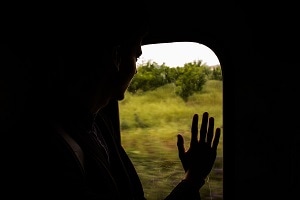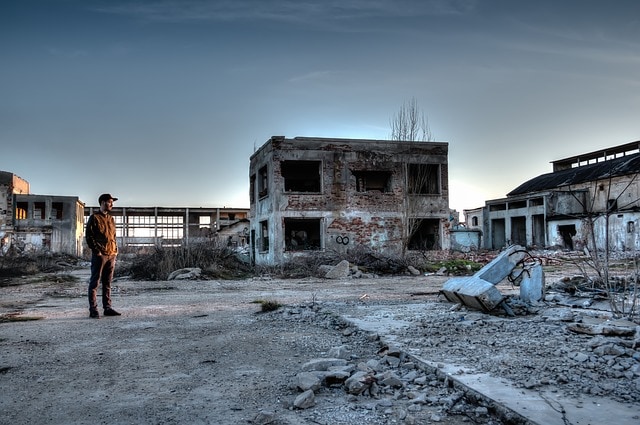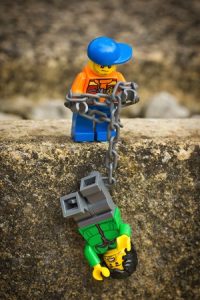Whether facing a hurricane and flood, wildfire, volcano, loss of a job, or flat tire, we all have moments when we feel helpless. But I maintain we aren’t as helpless as we think.

Often our cultural stereotypes are to blame. I’ve met countless men working away from home who are clueless when it comes to doing their laundry. Their mom or wife always did it. Or changing a flat tire? “You just call me, honey, and I’ll take care of it,” Dad might have said, but he’s 1500 miles away, or gone completely. We deprive ourselves and our children of many life skills by insisting on roles that really don’t apply.
My dad raised three girls in the 1950s and 1960s, and he insisted he wasn’t going to do everything for us. He was also a Boy Scout leader, and our mom was a Girl Scout leader. In addition to cooking, baking, cleaning and sewing, we also learned how to use a screwdriver, hammer, wrench and paintbrush. Even power tools. I met my husband while changing out the lock and striker plate on a motel room door. I soldered many an electrical connection in the day when stuff was worth fixing rather than replacing.
“But Mother Nature doesn’t play around,” you might say. No, she doesn’t. But that doesn’t make you helpless. It simply means learning to be prepared.

When you stay in a motel or hotel room, there is always an evacuation route posted on or near the door. Ever pay attention to it? It could save your life to know where the stairs are. What about at home? Have you discussed with your children what to do in an emergency? Or are you trying to protect them from the thought of something bad? Those kids you hear about on the news that called 911 or ran to the neighbors for help – someone talked to them about what to do. Things like a house fire, tornado or even the occasional bad guy don’t care about your kid’s feelings. It is YOUR responsibility to prepare them.
Kids are smart. And they aren’t as bound to the norms as adults, so their solutions can be both creative and effective. Include them in your household “disaster planning”. Not only will they think of things you never would, it will give them ownership and confidence that they know what to do.
More and more of our schools hold “shooter” drills, but your child is much more likely to drown in a flood. What plans have you laid?
There have been a lot of evacuations for various reasons lately. Are you ready? Have you thought about what you need, where you would go (have more than one plan), what should be in your to-go bag – and where that will be stored? Play the what if game with your family or yourself. If a storm knocks out electricity, what will I do? If weather strands you at school/work/wherever, do I have what I need with me?

And don’t forget your pets. For many of us, they are our family. Have you prepared for them, or will they have to be abandoned? Animals can freak out when we freak out; have you practiced an evacuation with them so you all are calm?
A figure was published recently that it costs more than $500 for a person to evacuate their home. We like to shake our heads at the “dumb fools” who stay behind, but often they have no choice, either lacking the funds, means or have health issues that prevent mobility. If you know someone in that situation, what can you do to help them prepare?
At this stage of the game, it’s unlikely we will keep the seas from rising or the forests from burning. But we can prepare, whether it be building sea walls, moving folks to higher ground, or requiring fire buffers. Many of those things are already happening despite the political ostriches. Issues that haven’t been addressed are things like food supply and the vast numbers of people who will be affected by these changes. It feels overwhelming, and fatalism can slip in easily. But there are things that you, as an individual, as a member of a family can do now. Especially for those “little” disasters no one thinks about: the flat tire, unexpected illness or accident, job loss.
Once again, you get to choose: be helpless or be prepared to do what you can.